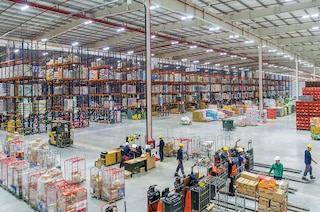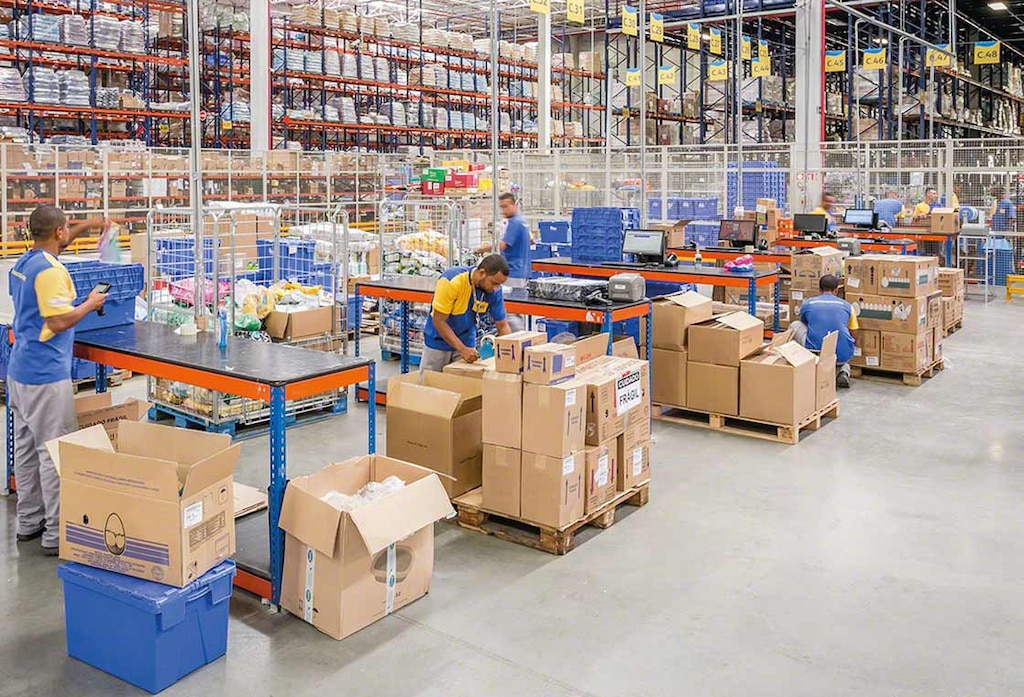
Warehouse labor performance: how to motivate your logistics team
In logistics, like any other business, sometimes we forget that motivating our team is a great way of optimising logistics. Meaning, if you motivate your operators, their warehouse labor performance inside your business will improve, and the impact on your costs will be significant. So, we decided to take time to analysis labor performance and highlight four ways to manage and motivate your logistics personnel.
How do you measure warehouse labor performance?
A warehouse labor performance indicator lets you see each operator’s efficiency in his or her workstation. The formula to calculate it is:
Warehouse labor performance = 100 X (Standard performance time / Work time)
Standard performance time = an initial time alloted to carry out a series of operations.
Work or execution time = actual time used to carry out a series of operations.
Warehouse labor performance is a crucial factor in any warehouse, since it embodies Work times, lets you calculate alloted times, i.e., the standard performance time to carry out a set of logistics operations.
You will find it much easier to detect a lack of staff motivation and interest. A lower labor performance engagement level can be interpreted as low motivation. In this case, you can establish tools to re-motivate your personnel.
Four motivational tools for logistics operators
The more motived and engaged employees are, the more efficient and faster they will be in all the logistics tasks they must undertake.
However, motivating your team isn’t always easy, and less so when logistics operators have to repeat the same tasks hundreds of times over. Probably, they get bored very easily. Here are four ideas, or tools, to keep your team revved up:

Financial incentives:
Using incentives to motivate your operators must be one based on your HR policies, whether applied collectively or to individual workers.
In addition to engaging your employees, you will be encouraging them to do their best and, as such, to do his or her work faster. Running a team this way has proved effective for years; however, if only applied to the money side of thing, you will only reap part of the potential benefits.
Team building:
The term “team building” was introduced into the professional world in the 1980s, and continues to hold weight in best business practices since then. It helps to reinforce the bond between your team members, a sense of belonging, which the large majority of individuals need to feel fulfilled in the workplace. Logistics is no exception to the rule: team building represents a good way to motivate and engage your employees.
Honestly, you don’t need to organise whole days dedicated to team building to bring your team closer together. Sometimes, it all starts with a small step toward better engagement.
Variety is the spice of life:
Can you imagine doing the same task day in, day out? How would you keep yourself motivated? Well, probably you wouldn’t. Now, let that filter down to your logistics operators’ perspective. Why not vary the tasks your team members do somewhat?
You will make headway if you let your employees change their task focus periodically. Your operators will be multi-purpose laborers and can substitute an absent co-worker if needed. Finally, they will be more motivated and engaged with your company’s work and vision.
Mindfulness in business:
Practicing mindfulness in a company is a trendy topic. But, what does it mean to be mindful?
Being mindful means being more focused on the needs of others than on your own. Mindfulness in companies comes out in day-to-day work behaviors, like politeness, gratitude, empathy, openness, trust, optimism, etc. These values can be applied to thousands of actions and attitudes, making you into a mindful manager.
Being mindful also means being adaptable and an active listener. Try to accommodate the work schedule for each person, depending on their personal needs and potential. Your operators can combine their personal and professional life, and without a doubt, they will be grateful for this flexibility. And, their productivity and warehouse labor performance will improve.
Optimising your logistics will also depend on how motivated are your logistics personnel. The more motivated your employees are, the more productive they will be. Incentives, mindfulness, task diversity and team building deserve a prominent place given the benefits they sow.
